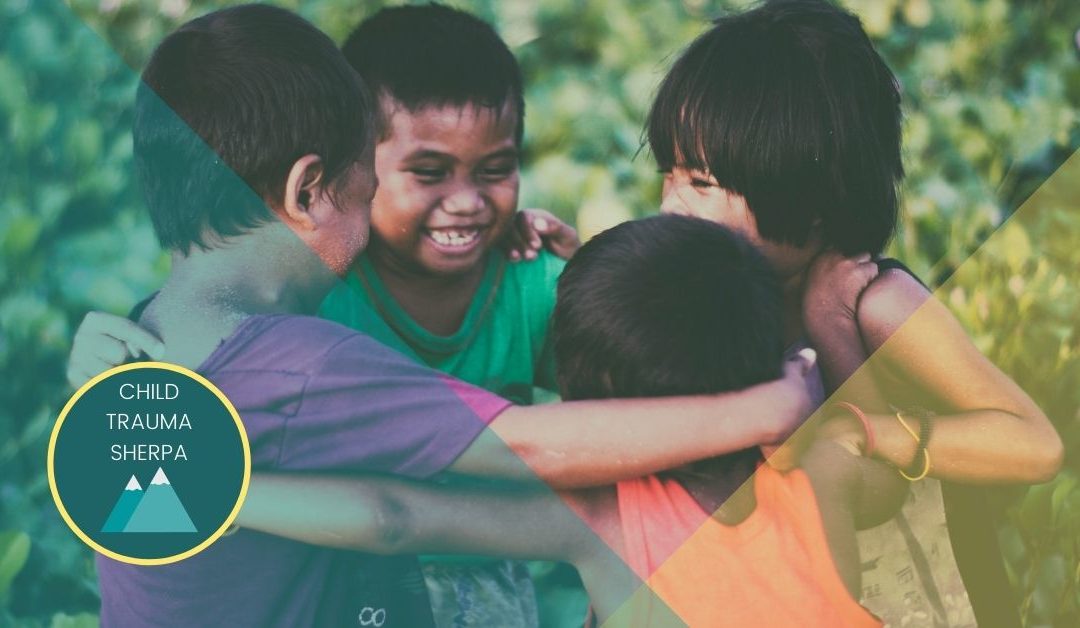Understanding the Symptoms of Childhood Trauma can Lead to Better Healing
There are unfortunately many types of trauma that can happen to children. While children with trauma do exhibit similar behaviors as a result of experiencing trauma, each child and their traumatic experience are unique.
Why It’s Important to Understand the Effects of the Different Types of Childhood Trauma
In order to help your child with trauma, you must first understand the effects, or symptoms, of the different types of trauma. When first dealing with trauma in your adopted child, you might feel that many of their behaviors are just bad behavior or that your child is ungrateful. However, once you understand that these behaviors are the result of trauma, you can become more open to the steps that need to be taken to actually help your child heal from trauma.
The Types of Childhood Trauma
When it comes to Adverse Childhood Experiences (ACEs), there are three main categories: abuse, neglect and household dysfunction. We’ll take a look at each category, plus some other types of trauma that your adopted child may have experienced.
Abuse
There are three subcategories of abuse and they include physical, emotional and sexual abuse. Let’s take a deeper look at the effects of each.
- Physical: The effects of physical abuse can be far reaching and are especially devastating when that abuse comes at the hands of someone the child depended on for protection and safety. Children who have been physically abused:
- May struggle with maintaining friendships
- Don’t trust authority figures
- Have low self-esteem or low self-worth
- May blame themselves for the abuse
- May become aggressive or have other behavioral issues or other issues coping with stressors
- May seem to not care anymore if they are hit and have lost the normal fight or flight reaction
- May become fearful or anxious
- May be numb or withdrawn
- May develop PTSD or other psychological problems such as depression
- May not hit development milestones in a timely manner
- May exhibit risky behavior
- Emotional: This type of abuse includes insults, swearing at the child, threatening to physically harm them, or terrorizing the child or making them feel afraid in some way. The emotional needs of the child are also not met (e.g. providing support, believing in the child, creating a close knit family, etc.). Children who have suffered emotional abuse:
- Are unable to relax and are constantly on high alert
- Feel fearful
- May find social situations challenging
- May develop a mental health condition, such as depression
- May have low self-esteem
- May have learning deficits
- Will have issues coping with stressors
- May form unhealthy attachments
- Sexual: Sexual abuse can come at the hands of an adult or another child and can also include having experienced sex trafficking. Children who have experienced sexual abuse:
- Will have increased nightmares or other difficulties sleeping
- Have withdrawn behavior
- May have angry outbursts
- Have anxiety and/or depression
- May not want to be left alone with particular individuals
- Will have sexual knowledge, language and/or behaviors that are inappropriate for the child’s age
- Will have issues coping with stressors
- May have learning deficits
- Feel disconnected from peers
- Have feelings of shame or low self-worth
- May bully others
- May form unhealthy attachments
- May exhibit risky behavior, such as sexual activity
Neglect
This type of ACE includes both physical and emotional neglect. Children who have experienced either type of neglect:
- May have feelings of anxiety or fear
- Will be hypervigilant
- May have depression and might self-harm
- May have eating disorders
- Will have trouble sleeping
- Will feel uncomfortable with physical contact from others
- May not trust authority figures
- May find social situations challenging or may be withdrawn
- May have low self-esteem
- Will have difficulty making and maintaining relationships
Household Dysfunction
This type of trauma involves problems within the household:
- Untreated mental illness experienced by someone in the household
- Having an incarcerated relative
- Mother treated violently
- Substance abuse by someone in the household
- Divorce
Children who have experienced one of these types of trauma:
- May exhibit depression and might self-harm
- May have anxiety
- May exhibit risky behaviors, such as substance abuse
- May be withdrawn or have issues forming healthy relationships/attachments
Other Types of Trauma
Some other types of trauma that your adopted child may have experienced include:
- Natural disasters
- Bullying by peers
- Medical trauma
- Refugee trauma
- Terrorism and community violence
- Traumatic grief
Symptoms are often similar to other types of trauma, such as fear, anxiety and depression. Some children may think about these traumatic events often, even when they don’t want to and others may act like the event didn’t happen at all.
Complex Trauma
Complex trauma is when a child experiences multiple traumatic events, often invasive or interpersonal in nature. This type of trauma has wide-ranging and long-term effects that disrupt the child’s development and sense of self. They are often unable to form healthy attachments and may have a variety of physical and mental health issues.
Final Thoughts
Now that you understand the effects of each type of trauma, you can help find the right treatment for your child. Understanding also leads to more patience, which is something your child will need from you in spades. To learn more about helping your child heal from trauma, check out our Parent’s Guide with 8 tips to help your child heal.


